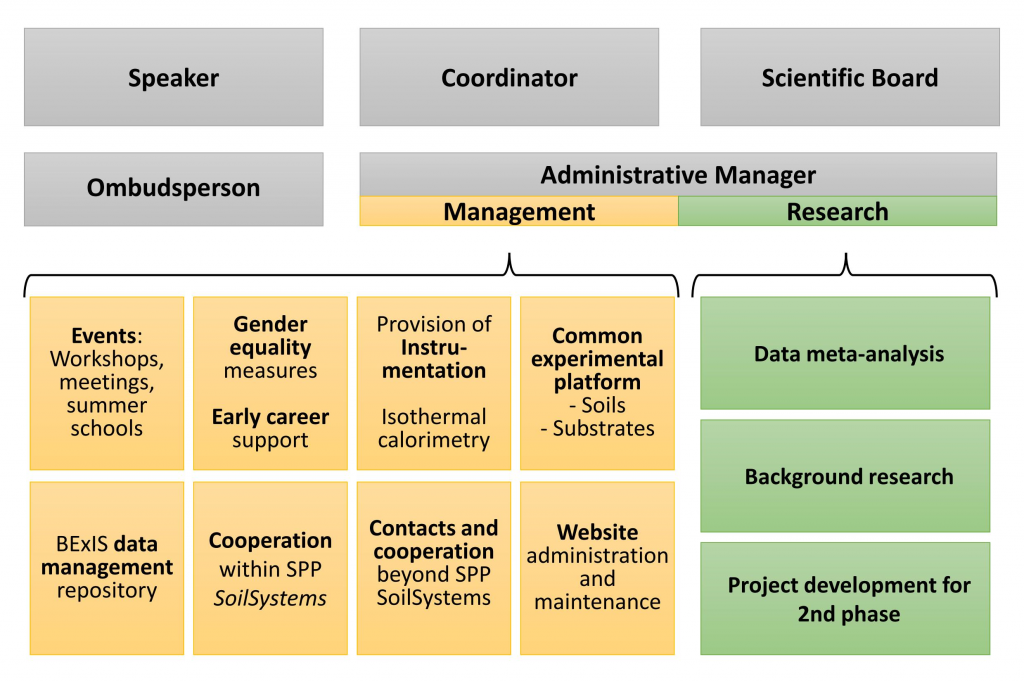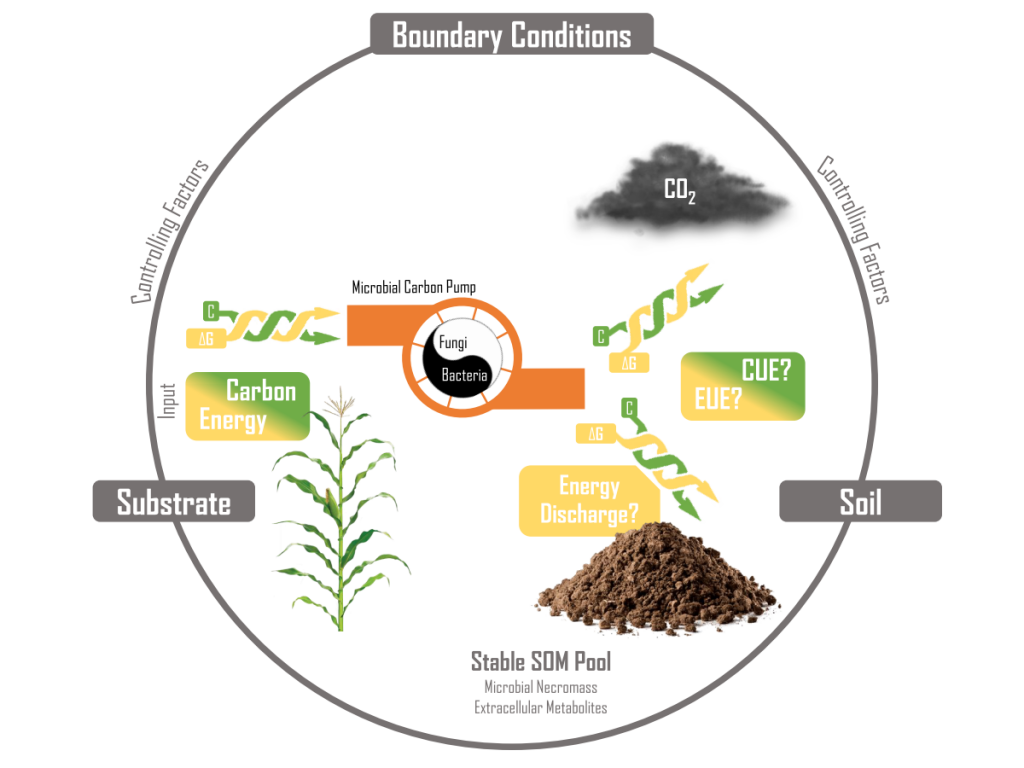Priority programs – other than research groups – invite independent research in individual projects to contribute to the common scientific topic. Due to that and in order to reach the expected higher synergistic benefit from the entirety of projects on one hand and to provide optimum feedback and input for the individual participants on the other hand a competent coordination of the SPP is indispensable.
SoilSystems will be steered by the coordination group. The overall aim of the coordination group is to care for the progress of the SPP SoilSystems. It is headed by the Coordinator Sören Thiele-Bruhn leading all SPP wide activities, further planning, events and meetings etc. together with Matthias Kästner as the Speaker and co-coordinator supported by Marcel Lorenz as the Administrative Manager of the SPP. The administrative manager will (i) assist in the scientific organization and practical management of the SPP and (ii) actively contribute to the overall scientific output of the SPP by doing related background research (see below) as well as initiating and participating in joint studies and data analysis (meta-analysis).
This coordination group is thematically supported by the Scientific Board with expert colleagues specifically dedicated to the following research activities:
- Anja Miltner – Matter and energy flux
- Thomas Maskow – Soil thermodynamics
- Christoph Tebbe – Soil microbiology and omics
- Liliane Rueß – Soil micro-food web and C-flux
- Thilo Streck – Soil modelling
- Alina Rupp – Representative for the young scientists
Specific tasks of the scientific board are to support the general coordination and the cooperation of individual projects and partners, respectively, which are dedicated to the outlined topics within and beyond SPP SoilSystems. Furthermore, members of the coordination group and scientific board will contribute to (co-)organize and chair thematic sessions and discussions at program meetings and workshops and they will search for and maintain contact with thematically related groups beyond the SPP SoilSystems.
If SoilSystems participants have any complaints or concerns within the SPP2322, our Ombudsperson Tessa Camernzind can be contacted, who attempts to resolve them, usually through recommendations or mediation.

The coordination group, thus proposes this Coordination Project with the specific tasks: i) to organise the network of interacting research teams, ii) to unify and coordinate the Common Experimental Platform (with the specific aim of researching heat flux and mass turnover), iii) to integrate and collect data, following a Data Management Strategy, iv) to organize theme related meetings, v) to synthesize and communicate the outcomes of the SPP, and (vi) to discuss and further develop the perspective for a second phase of SPP SoilSystems.
Research Work
Energy use by dynamic soil microbial consortia and contribution to soil organic matter
Existing energy-based descriptions of SOM turnover are mainly based on theoretical frameworks or models, some of which with only partial validation by experimental data. It is assumed that an integration of both, matter and energy balances (e.g. through the use efficiency of carbon, CUE, and energy, EUE), under varying conditions in terms of different substrates, soil habitats and boundary conditions provides insights into the energetic driven microbial modulated formation and turnover of SOM. In addition, organism-specific factors are of relevance for the evaluation of the actual EUE and CUE in relation to the maximum possible thermodynamic CUE and EUE. This can only be analysed by use of multiple data sets of turnover processes, which cannot be produced in just one research project. Multiple soil systems-related factors (soils, substrates and boundary conditions) that can influence the microbial turnover will be systematically, yet separately investigated by planned core projects and associated projects within SPP 2322. Therefore, general objective of the scientific part of the coordination project is to unify and synergistically synthesize the data obtained in order to assess the controlling factors for organic carbon and related energy turnover in soil systems.
Aim: Combine and assess different data sets in order to determine and disentangle the relevance of organism-related and soil-specific factors, thereby targeting and comparatively examine parameters of matter and energy turnover such as carbon use efficiency (CUE) and energy use efficiency (EUE). In more detail, this will be done (1) by collating existing concepts through a literature research, (2) by statistical analysis and modelling that is meant to identify relevant factors and to derive estimate data in order to fill gaps in the multidimensional data space of SPP 2322, and by testing growth related use efficiency concepts in order to identify selected thresholds.
The intended synthesis is focused on three overall questions:
- Key controlling factors of the microbial metabolism of organic substrates – what matters more: substrates, soils or boundary conditions?
- What determines the bioavailable energy and the actual use by microorganisms?
- Are there energetic thresholds and limitations constraining the microbial metabolism and energy use?

Link to English scientific abstract
Link to German scientific abstract